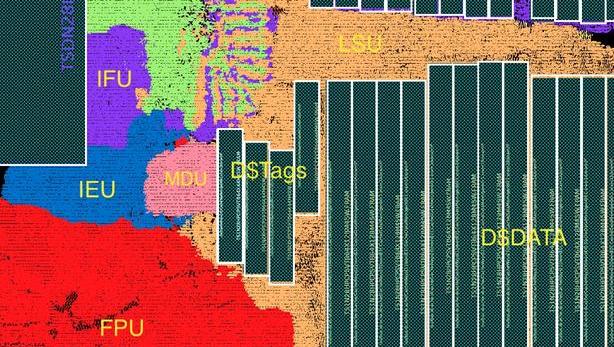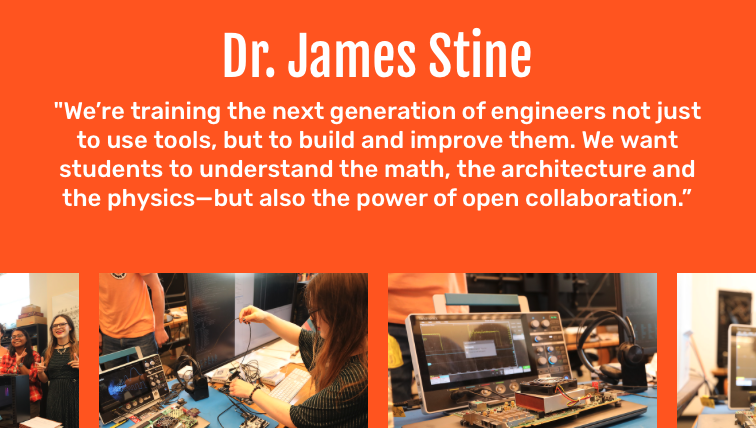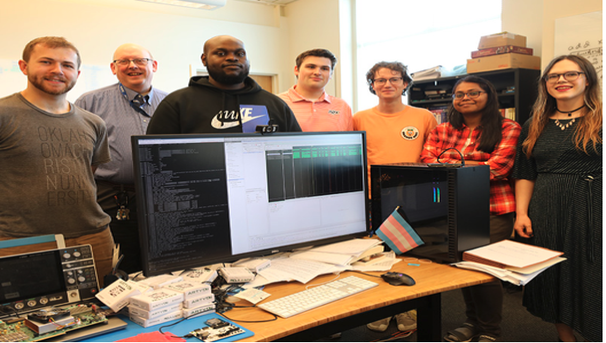Lightweight Intelligence: Leveraging Wally RISC-V
Overview
Wally is an open-source RISC-V System-on-Chip (SoC) architecture and design ecosystem developed at Oklahoma State University (OSU). It serves as a flexible platform for education, research, and prototyping in modern computer architecture and digital design. Wally supports both 32-bit and 64-bit RISC-V ISAs, with modular support for base integer, multiplication/division, floating-point, bit-manipulation, and cryptography extensions. Its design emphasizes clarity, configurability, and compatibility with industry-standard SoC flows.
Motivation
The project was created to fill a critical gap in computer engineering education and workforce development: providing students and researchers with a realistic, end-to-end SoC implementation that is both open-source and adaptable to a range of use cases. Unlike toy processors or black-box IP, Wally exposes all major subsystems of a production-quality SoC—including processor cores, memory hierarchies, caches, virtual memory, and I/O subsystems—allowing learners to study, extend, and optimize them.
Technical Capabilities
- ISA Support: RV32 and RV64 cores, including RISC-V extensions (M, F, D, B, K, and others).
- SoC Components: AXI-based interconnects, caches, MMUs, memory controllers, interrupt controllers, and peripheral interfaces.
- Customizability: Parameterized RTL for tailoring datapath width, cache size, and extension sets to educational or research needs.
- Integration: Synthesizable in commercial and open-source EDA flows (Cadence, Synopsys, Vivado, Verilator, etc.).
- Verification: Comprehensive Python and SystemVerilog testbenches, including compliance testing and automated GitHub CI pipelines.
Educational Impact
Our major focus is on our students. Wally is more than a processor project—it is a complete learning environment where undergraduate and graduate students gain real-world training in computer architecture, VLSI design, digital logic, and embedded systems. By working directly with a real-life processor developed here at Oklahoma State University, students gain an authentic, hands-on experience that prepares them to thrive in the semiconductor workforce. Every donation directly supports student learning, empowering them with the tools, hardware, and opportunities they need to succeed.
This effort is supported by the OpenHW Foundation, which strengthens Wally’s alignment with global open-source hardware initiatives. Together, OSU and OpenHW ensure that students are not only studying theory but actively engaging with the same technologies and design practices shaping the future of computing.
The project is deeply integrated into OSU’s curriculum, particularly in advanced digital design and computer architecture courses. It is also supported by the forthcoming Elsevier textbook, RISC-V System-on-Chip Design, co-authored by Dr. James Stine, which reinforces Wally as a teaching cornerstone.
Research Applications
Beyond education, Wally is actively being used as a research platform in several domains:
- High-performance, low-power RISC-V architectures for sensor integration and edge computing.
- Neuromorphic and bio-inspired systems through custom standard-cell library development.
- Trusted and secure computing with RISC-V cryptography extensions.
- 6G wireless testbeds and AI/ML accelerators on FPGA and ASIC implementations.
- Radiation-hardened SoCs for aerospace applications in collaboration with AFRL, NASA, and DOE initiatives.
Broader Impacts
By leveraging open-source PDKs (e.g., SkyWater 130 nm, GF180) and tools, Wally contributes to the open hardware ecosystem, supporting U.S. initiatives in semiconductor workforce development and CHIPS Act objectives. Its modular and transparent design allows it to bridge academic learning, industrial partnerships, and national research priorities in secure, high-performance SoC development.
$10
$10 — Circuit Supporter
Provides essential lab supplies and materials for hands-on chip design learning.
$35
$35 — Code & Coffee
Keeps students energized during late-night bring-up and debugging sessions.
$45
$45 — Simulation Supporter
Helps maintain computing resources for testing Wally processor designs.
$100
$100 — Silicon Starter
Helps maintain and expand access to open-source development tools and FPGA platforms.
$250
$250 — Chip Innovator
Funds student access to fabrication test boards and debugging equipment for real-world processor bring-up.
$500
$500 — RISC-V Champion
Supports advanced student labs, enabling learning in VLSI, security, and AI-capable architectures.
$1,000
$1,000 — Chip Builder
Covers a full student project kit — including FPGA, logic analyzers, and measurement tools — empowering students to build and test processors end-to-end.






